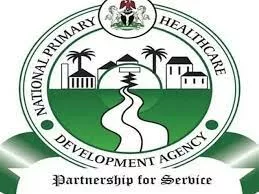The National Primary Healthcare Development Agency (NPHCDA) has announced plan to launch a community-based health research, innovative-training and services programme to address the human resource for health gaps in primary healthcare centres across the country.
Executive director of NPHCDA Dr. Faisal Shuaib, told a press conference on Tuesday in Abuja that the community-based research programme is done in with state primary health care boards, local government health authorities and the benefiting communities to support primary health care development.
He said the intervention specifically focuses on increasing, retaining and improving the quality, adequacy, competency, and distribution of a committed multidisciplinary primary health care workforce that includes facility outreach and community-based health workers supported through effective management supervision and appropriate compensation.
The programme aims to leverage the rural posting of resident doctors from teaching hospitals to boost and guarantee the quality of care at the PHC level through their active involvement in primary health service delivery. “This is targeted at improving Reproductive, Maternal, Newborn, Child and Adolescent Health, amongst other health services within the benefiting communities.
“In addition, Human Resources for Health (HRH), particularly Skilled Birth Attendants, such as medical doctors, midwives, nurses, and Community Health Extension Workers (CHEWs) that have been trained on how to manage emergencies would be recruited and deployed to priority PHC facilities across the country,” he explained.
Shuaib stressed the need to address the human resource gaps in the country’s primary health care system, saying 80 percent of the incidences of maternal and child deaths in the country occur at the community levels, largely due to the lack of services of skilled health workers in the PHC facilities.
“Unfortunately, the primary health care centres are the most unattractive to our skilled health workers who prefer to be stationed at urban secondary and tertiary health facilities,” he added.
While thet factor has kept the sector stagnated, Shuaib said there are official scientific evidence, showing that the interventions provided by skilled health workers, namely doctors, nurses, midwives, or CHEWs trained on MLSS can reduce maternal and new-born mortality in low and middle-income countries, including Nigeria.
He disclosed that the community-based research programme will be funded by the government with support from development partners, philanthropists, among others.





